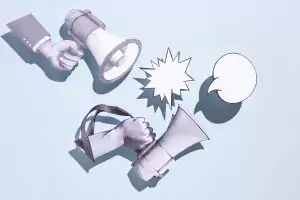
✅ AI Essay Writer ✅ AI Detector ✅ Plagchecker ✅ Paraphraser
✅ Summarizer ✅ Citation Generator
Hi everyone.
 If you take a look at the biographies of famous writers (or at least read this expository essay sample) you will see that many of them possess specific—if not to say weird—habits that not only made them stand out among other people, but helped them to write better. Sometimes these habits include elements of self-destruction such as abusing substances—sometimes they were just odd. Victor Hugo, for example, used to write completely naked. Anyways, what I am going to offer you today is a list of writing habits that might be useful—and safe—for you, and which would improve your writing in the long term.
If you take a look at the biographies of famous writers (or at least read this expository essay sample) you will see that many of them possess specific—if not to say weird—habits that not only made them stand out among other people, but helped them to write better. Sometimes these habits include elements of self-destruction such as abusing substances—sometimes they were just odd. Victor Hugo, for example, used to write completely naked. Anyways, what I am going to offer you today is a list of writing habits that might be useful—and safe—for you, and which would improve your writing in the long term.
- Regular writing
This advice is as old as the world, and still it is amazing how many writers manage to ignore its importance. What you should do is write at least one page of text (275 words) every day. If you can write more, do it; if not, one page is enough to guarantee you steady progress in writing your novel/essay/dissertation/screenplay and help you gradually improve your writing skills. Practice makes perfect, they say.
- Forget about empty words
This piece of advice is not mine—it belongs to the author of “Fight Club” (and other brilliant novels) Chuck Palahniuk; the idea is that you completely stop using verbs such as “think,” “remember,” “know,” “believe,” and so on. I would only add that you should also forget about all those “brilliant,” “wonderful,” “spooky,” “delicious,” and other descriptions which never do what they are meant to do: they don’t convey sensations but name them.
“But what should I do then?” you might ask. Well, here is a quote from Chuck Palahniuk for you:
“Thinking is abstract. Knowing and believing are intangible. Your story will always be stronger if you just show the physical actions and details of your characters and allow your reader to do the thinking and knowing. And loving and hating.
Don’t tell your reader: “Lisa hated Tom.”
Instead, make your case like a lawyer in court, detail by detail. Present each piece of evidence. For example:
“During role call, in the breath after the teacher said Tom’s name, in that moment before he could answer, right then, Lisa would whisper-shout: ‘Butt Wipe,” just as Tom was saying, ‘Here.’”
- Always have a plan
Spontaneous writing is a myth. Well, it’s not, but all these Hollywood fairy tales about writers inspired so much that they spend whole days writing (and writing, and writing), and then instantly submit their novels to editors and get published are nonsense. Perhaps, somewhere in the Universe, there lives a genius who can write wonderful stories spontaneously, but for common folk, meticulous planning remains the best possible technique. Even if you think you know what your next chapter is going to be about, spend five-ten minutes of your time to chalk out at least a roadmap for it.
- Your ideas have a priority
Sharing opinions definitely boosts creativity. When we ask our friends, relatives, or competent people about feedback on our writing, they might give you good advice. Still, I believe that in the case of creative writing, your vision should come first. If someone shares his or her brilliant ideas, thank him or her—and even write these ideas down, because they might work—but by all means, write your own version first. What you composed first is the basis of your plot; the rest must be carefully checked and analyzed to see whether it will work or not before inserting it into your text.
- Write alone
Somerset Maugham was known to write his masterpieces in public places (including brothels). Don’t be like him. Nothing better than solitude and peaceful, contemplative meditation was ever invented for a writer.
Have fun writing.
Follow us on Reddit for more insights and updates.




Comments (0)
Welcome to A*Help comments!
We’re all about debate and discussion at A*Help.
We value the diverse opinions of users, so you may find points of view that you don’t agree with. And that’s cool. However, there are certain things we’re not OK with: attempts to manipulate our data in any way, for example, or the posting of discriminative, offensive, hateful, or disparaging material.